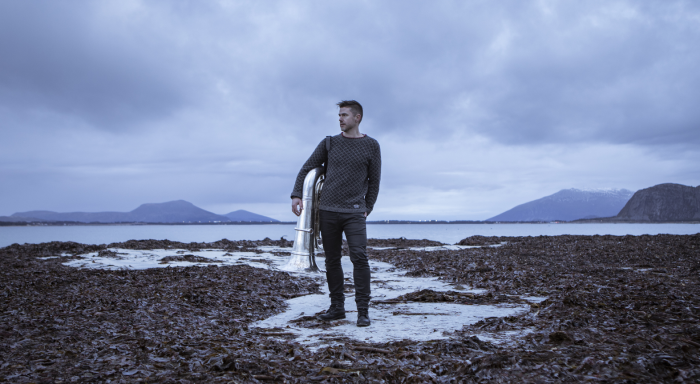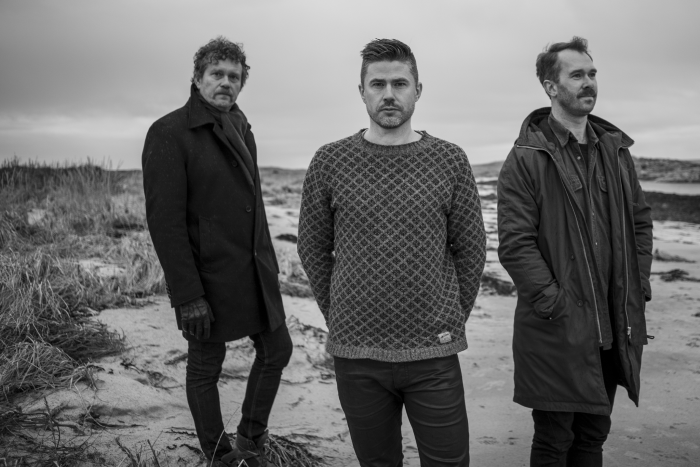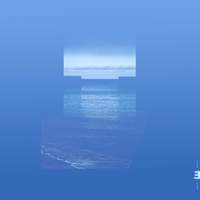Recording of the Week,
Daniel Herskedal - Harbour

Norwegian tubist Daniel Herskedal has made quite the mark with his uncommon instrument of choice. The Spelleman Award winner (the Norwegian equivalent of the Grammys), composer and bandleader has quite the streak going with his recent output, all led by the rumbling tones of his tuba and bass trumpet. We have, admittedly, been quite smitten with Herskedal’s recent output here at Presto Jazz; you can read Matt’s review of his 2019 record Voyage here, and our low-down on the rest of his catalogue here. Harbour is Herskedal’s sixth release on Edition Records, following up Voyage and last year’s highly cinematic Call of Winter. He reunites again with his longtime collaborators, pianist Eyolf Dale and drummer Helge Andreas Norbakken, reforming the jazz trio that was missing on last year’s album. Also returning is producer August Wanngren, who’s been present on all of Herskedal’s recordings since signing onto Edition, with Herskedal and the band co-producing.
While Herskedal’s records have always had their more evocative moments - even 2015’s Slow Eastbound Train opens with the haunting ‘The Mistral Noir’ - it wasn’t until Call for Winter that we were treated to an entire album of Herskedal’s bassy-brass goodness. If these two sides of Herskedal’s music came from disparate approaches before, with Harbour it feels as though he’s found a way to marry the two; all pieces written for jazz trio carry the same carefully composed quality of his choral-style brass recordings, while even the more slow-burning tunes have that feel of a live band. Opening with ‘The Mariner’s Cross’, Harbour gets off to a solemn and cinematic start, evoking images of a muted coastal landscape; the rising brass complementing the urgent rhythmic percussion and piano, with a wailing trumpet solo sails over the top. The band cap it off with the tasteful inclusion of an echoing piano and xylophone towards the end, the end result something that wouldn’t be so out-of-place in a National Geographic documentary - and I mean that in the best way possible. Elsewhere on ‘Arriving at Ellis Island’, the xylophone returns again to mimic Dale’s piano lines while Norbakken’s percussion sounds more akin to clanging metal. Extra sonic additions like these come with crystal clarity thanks to excellent production from the band and Wanngren; not that the record ever sounds terribly dense, but whenever these extra instruments or sounds appear they’re never lost in the mix.

One of Herskedal’s greatest strengths, both as a composer and performer, is his unorthodox uses of the tuba in the context of his music; the track ‘Ice Free’, for example, sees him huffing through the tuba’s mouthpiece, which combined with the deep, bassy percussion almost mimics the sounds of an old-timey steamboat. Meanwhile, ‘Beaches of Lesbos’ sees Herskedal taking on a breathy, flute-like tone for the melodic parts not dissimilar to fellow Norweigan Arve Henriksen, with Norbakken coming through again with some slow, thuddy percussion. Even with his earthy, grounded bass-register instruments, Herskedal pushes them into their upper register with some soaring melodies - the lonely trumpet on ‘The Lighthouse on the Horizon’ cutting through like a lonely foghorn from a distant shore. The track later opens up with the rest of the band revealing themselves, Dale bringing the piano to the forefront with a cascade of notes. The trio kick it up a notch again on the proceeding ‘Hunters Point Drydocks’, locking into a syncopated groove for one of the more intense cuts on the record. There’s even harkenings back to his past work; the lead melody on ‘Dancing Dhow Deckhands’ wouldn’t feel so out-of-place on 2017’s The Roc, its swaying melody carrying a shade of that record’s Arabic melodic flair.
The reigning king of jazz concept albums, Herskedal grants each piece a fitting and evocative title, and despite the ever-present theme it never feels forced or hackneyed. Herskedal has never made a secret of his love for the natural landscape - Harbour was recorded at Ocean Sound Recordings in December 2020, on an island just off the western Norwegian coastline. Rather fittingly, compared to his similarly nautical-themed album, 2019’s Voyage, Harbour seems more interested in the tranquility and comfort found by the sea, rather than the bold, seafaring conquest of its thematic predecessor. Like any Herskedal record, there’s the always prevalent underlying influence from Norwegian folk music, bringing us melodies that can be both solemn and catchy; much like the rest of his catalogue, it’s steeped in a fascination and awe with the natural world and its histories.
Available Formats: CD, MP3, FLAC, Hi-Res FLAC




